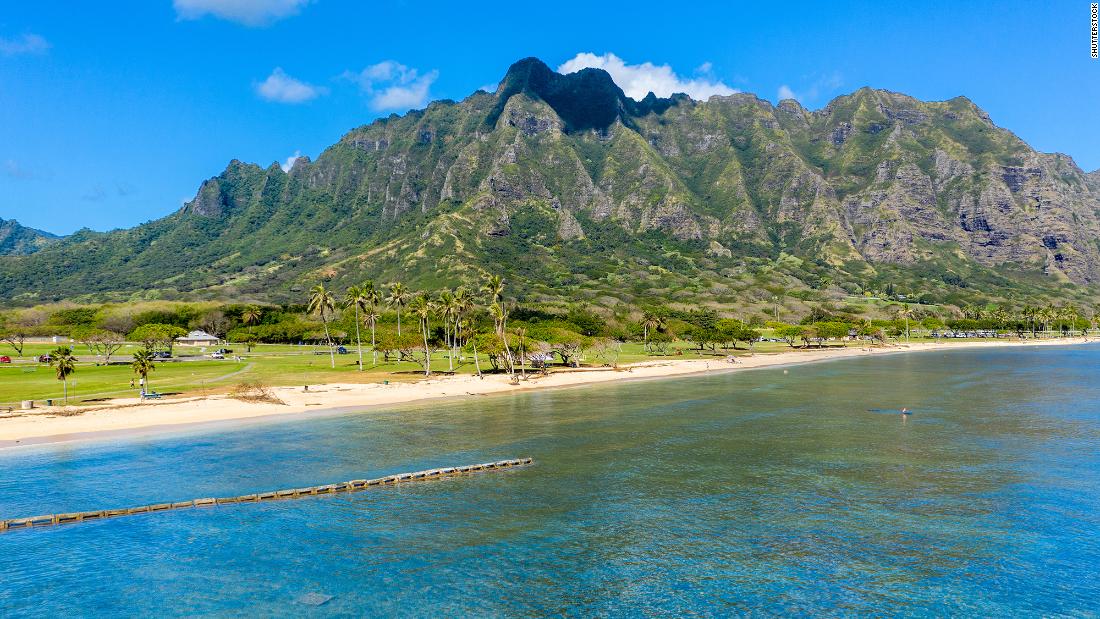
On Tuesday, the Justice Department filed a statement of interest in support of a federal lawsuit brought last week by a group of Nevada and California residents who own property in Hawaii and seek a temporary restraining order against Hawaii Gov. David Ige's mandate.
The Justice Department's involvement is especially notable at a time when several states in recent days have seen a spike in coronavirus cases and the virus has infected over 2.3 million Americans.
The Justice Department in its filing said that Hawaii's requirement has caused "real harm" to the state's tourism industry, "at a time when Americans most need their States to support efforts to reopen businesses in a manner consistent with public health."
Since March, Ige has imposed 14 days of self-quarantine for anyone entering the Aloha State.
He later added exceptions for those who have traveled to Hawaii "to perform critical infrastructure functions," allowing them to "break quarantine" to perform those functions, and anyone on "recreational boats" who had been on board for at least 14 days and with no one sick from Covid-19.
Anyone who violates the self-quarantine mandate faces up to a year in jail, a $5,000 fine, or both.
The Justice Department notes that Hawaii residents, however, have free reign to travel across the state, including between islands.
"The Constitution does not permit the effective discrimination challenged in this case," the filing from the department's civil rights division and the US Attorney for Hawaii reads. "Although Hawaii may adopt reasonable measures to protect its residents from the COVID-19 pandemic, it cannot impose measures that 'in practical operation' discriminate against out-of-state visitors, unless the measures are substantially related to ensuring public safety."
The Justice Department also points to Alaska, which like Hawaii is reached by plane and requires a 14-day quarantine for out-of-state travelers — but is "able to protect public health through less restrictive means."
Alaska allows out of state travelers to get tested on arrival or within 72 hours to five days prior to departure. The two states are among the states with the least amount of confirmed cases. Hawaii has 835 confirmed cases of Covid and Alaska has 789 cases, according to John Hopkins University.
The department added that "it is incumbent on (Ige) to demonstrate why Hawaii cannot adopt a similar framework that both promotes public safety while not denying out-of-state residents the same freedoms in-state residents enjoy. Although the Governor has indicated his intention to adopt a similar plan, he has not done so yet."
On Wednesday, Ige announced that the state will ease these restrictions beginning in August.
Starting August 1, out-of-state travelers to Hawaii will be allowed to avoid the 14-day quarantine if they get tested prior to their arrival at an approved location and provide proof of their negative test result. Testing won't be available at airports.
Ige said that Hawaii can't take the same approach as Alaska to allow people to be tested upon arrival because his state receives far more visitors.
The Democratic governor denied that his decision to make the announcement Wednesday was in response to the Justice Department's statement of interest.
"Certainly I think this announcement may have an impact in the case, although we believe that it doesn't have any merit in general," Ige said at a press conference Wednesday at Honolulu's airport. "We'll continue to fight for the right to keep our community safe by taking the emergency actions that I and the mayors believe is in the best interest of our community, to keep our community safe and healthy."
Ige said he wouldn't consider lifting the 14-day quarantine unless there's a vaccine or advances in therapeutic treatments, and "we can get to the point that the health care community feels like we can treat those with Covid-19 in a safe manner."
As cases started to climb in March, several states, including Florida, Kansas and Massachusetts, implemented a self-quarantine for two weeks for travelers from certain other states, with exceptions for essential workers.
On Wednesday, the tristate area -- New York, New Jersey and Connecticut -- issued a travel advisory that requires people arriving from states with high coronavirus rates to quarantine for 14 days.
In April, after voicing objection to "draconian" coronavirus policies, Attorney General William Barr tapped the US attorney in Detroit, Matthew Schneider, and the head of the Justice Department's Civil Rights division, Eric Dreiband, to "oversee and coordinate our efforts to monitor state and local policies and, if necessary, take action to correct them."
The department in April threw its support behind a Mississippi church that sued to overturn a municipal order that prohibited drive-in church services during the coronavirus pandemic.
"day" - Google News
June 25, 2020 at 11:55PM
https://ift.tt/3dALsAJ
Justice Department supports challenge to Hawaii's 14-day quarantine mandate - CNN
"day" - Google News
https://ift.tt/3f7h3fo
https://ift.tt/2VYSiKW
Bagikan Berita Ini














0 Response to "Justice Department supports challenge to Hawaii's 14-day quarantine mandate - CNN"
Post a Comment